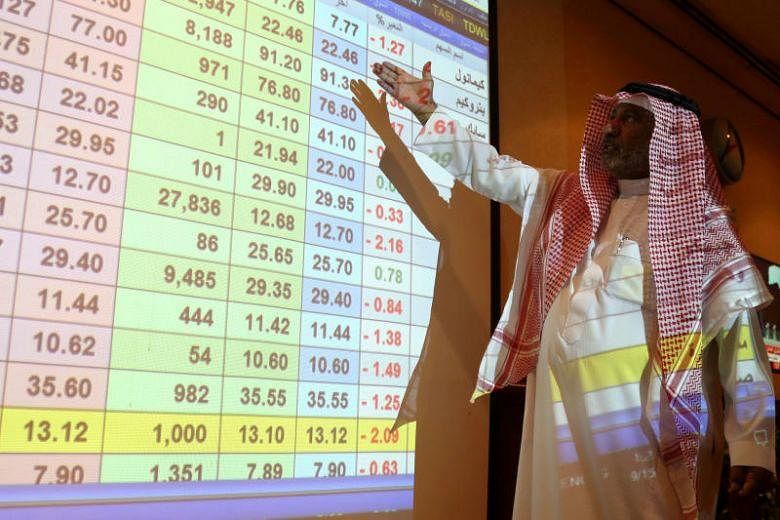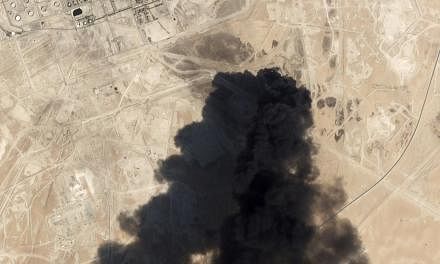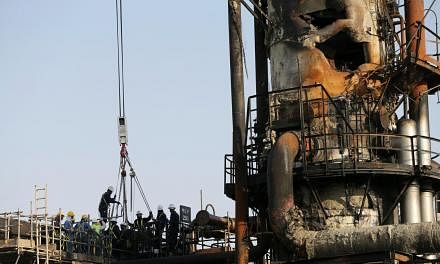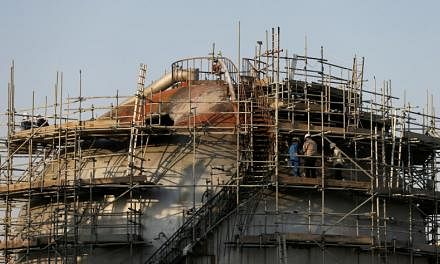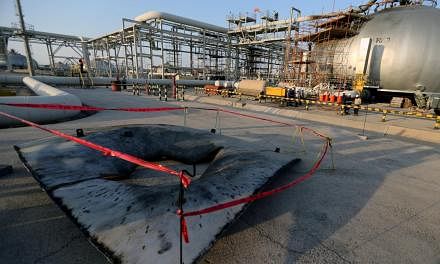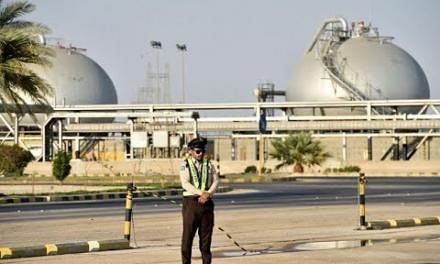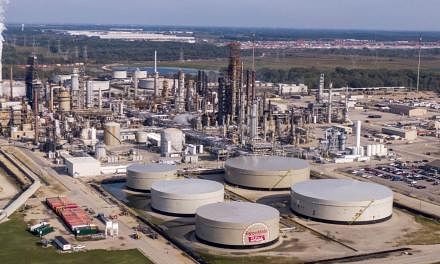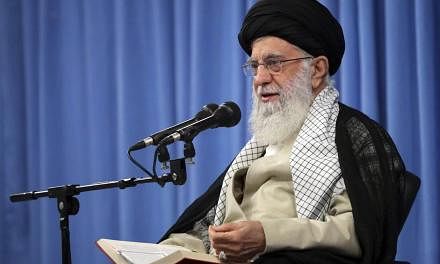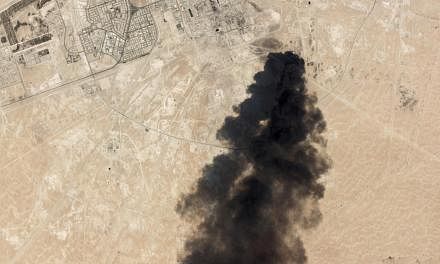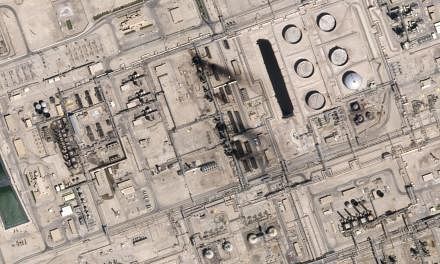Oil prices surged almost 20 per cent yesterday before pulling back after drone strikes on the world's largest crude-processing facility operated by Saudi Arabia's Aramco took out some 5 per cent of global supplies.
Analysts noted that the impact and next course of action will depend on how long the disruption lasts, with Aramco said to have 35 to 40 days worth of supply to meet contractual obligations and full recovery likely to take weeks.
Even as the United States and Saudi Arabia tapped their reserves to make up for the shortfall, experts said the attacks effectively wiped out the world's spare oil capacity.
The strikes have cut 5.7 million barrels per day (bpd) of crude output by Saudi Arabia, constraining the kingdom's ability to use its spare production capacity of more than two million bpd, which is held for emergencies, Reuters reported.
Analysts expect oil prices to stay higher, with Citi Research citing anxiety over the vulnerability of Saudi oil supplies and a re-escalation of US-Iran tensions as factors.
The US has blamed Saturday's drone attacks on Iran, with Teheran in turn dismissing the allegations as baseless - re-igniting fears of conflict between the two countries.
Brent crude futures jumped nearly 20 per cent to US$71.95 per barrel in the early part of trading yesterday, before giving up around half the gain to trade at US$65.38, or 8.6 per cent up, at around 7pm.
US oil futures spiked almost 16 per cent, although prices settled lower after President Donald Trump authorised the use of the emergency stockpile.
Stocks of airlines and other businesses with a large fuel bill took a hit, and analysts said Singapore could also see higher inflation if elevated oil prices persist.
DBS senior economist Irvin Seah estimated that every 10 per cent increase in oil prices will likely add about 0.3 percentage point to headline inflation, although he expected near-term impact to be marginal.
If tensions between the US, Saudi Arabia and Iran escalate to war in the worst-case scenario, he added, growth will take a hit as well.
This would add to existing pressure from the US-China trade war and increase the chances of a recession here next year.
Supplies from Saudi Arabia make up around 10 per cent of Singapore's oil imports, said Maybank Kim Eng economist Chua Hak Bin.
"Collectively, Asian demand for Saudi Arabian crude is around five million barrels per day, accounting for almost 72 per cent of Saudi Arabia's crude exports," said Wood Mackenzie research director Vima Jayabalan. While China, South Korea, Japan and India are the biggest takers in Asia, with China and Japan leading the pack, India could be most exposed as it has the least reserves, she added.
She noted that the others have some fallback. China, for example, has a strategic petroleum reserve and commercial crude storage.
Yesterday, South Korea said it will consider releasing oil from its strategic oil reserves if the situation worsens, said Reuters, although the country expects no short-term impact on securing crude oil supplies from Saudi Arabia. Thailand does not expect oil imports to be disrupted, while Indonesia said there is no change in the schedule and volume of crude oil committed by Aramco to its state-run oil refiner Pertamina, reported Bloomberg.
Asia markets were mixed, with the Shanghai Composite closing 0.02 per cent lower and Hong Kong's Hang Seng Index down 0.83 per cent. The Straits Times Index closed 0.24 per cent lower, but South Korea's Kospi Index was up 0.64 per cent.
Investors flocked to safe haven assets, with gold prices rising more than 1 per cent following the attacks.
Meanwhile, a Bloomberg report said the drone attacks may cut the valuation of Aramco, complicating plans for its initial public offering.
